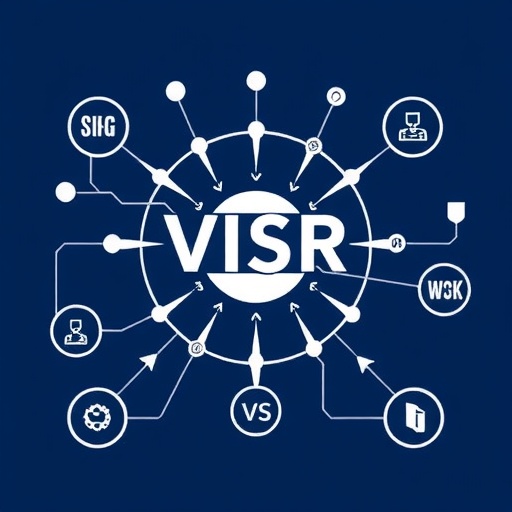In an ambitious effort to enhance the capacity of agencies serving military communities, George Mason University is spearheading the development and implementation of VISR 3.0, an advanced Learning Management System (LMS) designed to deliver comprehensive training for identifying and supporting service members, veterans, and their families. Under the leadership of Keith Renshaw, Senior Associate Provost for Undergraduate Education at the Office of the Provost, this initiative promises to revolutionize how critical suicide risk screening and intervention training are disseminated, tracked, and accredited across diverse organizations.
VISR (Veterans Identification and Suicide Risk) was initially piloted in 2020 and demonstrated promising outcomes, validating the necessity of structured and accessible training within agencies frequently engaging with veteran populations. The original program strategically targeted three core competencies: recognizing veterans and their family members, proficiently screening for suicide risk, and effectively navigating referrals or interventions. These foundational pillars remain integral to the ongoing evolution of VISR.
The subsequent phase, VISR 2.0, conducted between 2022 and 2023, emphasized broad evaluation and scalability enhancement. George Mason researchers analyzed the program’s impacts, identifying the pivotal role of digital accessibility in expanding training reach and effectiveness. The findings underscored that online availability combined with the ability to award professional continuing education (CE) credits would significantly increase participation rates and thereby improve the preparedness of personnel in various agencies.
Building on these insights, VISR 3.0 represents a sophisticated integration of the program’s training modules into a singular, harmonized Learning Management System. Hosted on the Canvas Catalog platform, the LMS ensures uniformity in content delivery while permitting universal access to agencies nationwide. This seamless digital conversion aims to resolve prior fragmentation in training experiences and create a standardized virtual environment conducive to both learning and administrative oversight.
One of the hallmark features of VISR 3.0 lies in its comprehensive tracking mechanism, which meticulously logs individual training completions. This functionality not only facilitates organizational compliance and quality assurance but also enables participants to monitor their progress toward earning recognized continuing education credits. Partnering with George Mason University, the system grants official accreditation and credit qualification, an essential incentive for professional development across affiliated workforce sectors.
From a technological perspective, the migration to an LMS platform like Canvas Catalog represents a significant step forward in educational outreach for veteran-related services. Canvas supports modular content design, dynamic assessment tools, and scalable enrollment management, all critical for delivering consistent high-quality training to a decentralized user base. This also enhances data analytics capacity, enabling ongoing refinement of curricula based on learner engagement and performance metrics.
The importance of equipping frontline staff with effective suicide risk screening capabilities cannot be overstated, particularly given the complex psychological risks faced by veterans transitioning to civilian life. Empirical evidence underscores increased vulnerability to suicide within this population segment, necessitating well-structured training that balances clinical sensitivity with practical intervention strategies. VISR 3.0’s architecture reflects this understanding by embedding evidence-based practices in an accessible and interactive format.
Funding for this cutting-edge project comes from the Virginia Department of Veterans Services, which has entrusted George Mason University with a $50,023 award to execute the initiative over a one-year timeline starting July 2025. The targeted completion in June 2026 aligns with strategic goals to deliver functional, scalable, and credentialed training solutions that respond to immediate needs in veteran care networks.
Beyond technology, VISR 3.0’s success depends on seamless collaboration between university researchers, veteran service agencies, and policy makers. The multidisciplinary approach ensures that the content remains relevant, context-specific, and adaptable to emerging trends in veteran mental health and associated service delivery. As agencies adopt VISR 3.0, the platform’s data-driven feedback will facilitate iterative improvements, fostering a continuous learning culture.
The transition from traditional classroom or isolated training sessions to a unified online model aligns with broader educational trends that emphasize remote and flexible learning modalities. Given the geographically dispersed nature of agencies interfacing with veterans, this shift greatly reduces barriers like travel, scheduling conflicts, and resource constraints, democratizing access to essential training.
Moreover, the ability for participants to acquire continuing education credits through George Mason University amplifies the professional value of the program. This credentialing fosters motivation, accountability, and recognition for staff who dedicate time to completing the training, potentially influencing career advancement and institutional investment in employee development.
VISR 3.0 also serves as a model for leveraging higher education institutions in public service innovations. By capitalizing on George Mason’s resources, expertise, and educational technologies, the project exemplifies how academia can contribute tangibly to civic health challenges. This partnership reinforces the university’s commitment to community impact and veteran affairs, consistent with its reputation as Virginia’s largest public research university with a mission grounded in accessibility and diversity.
In synthesis, VISR 3.0 embodies a strategic fusion of technological innovation, evidence-based education, and service-oriented collaboration. It addresses the critical intersection of suicide prevention and veteran support through an accessible, scalable, and professionally accredited platform, positioning itself as a transformative tool in veteran health services training nationwide.
Subject of Research: Development and implementation of an online Learning Management System for veteran identification, suicide risk screening, and intervention training.
Article Title: VISR 3.0: Advancing Suicide Risk Training Through a Scalable Learning Management System at George Mason University.
News Publication Date: Information not provided.
Web References: http://www.gmu.edu/
References: Information not provided.
Image Credits: Information not provided.
Keywords: Education, Social Sciences, Veteran Support, Suicide Prevention, Learning Management System, Continuing Education, Canvas Catalog, Public Service Innovation, Mental Health Training.




